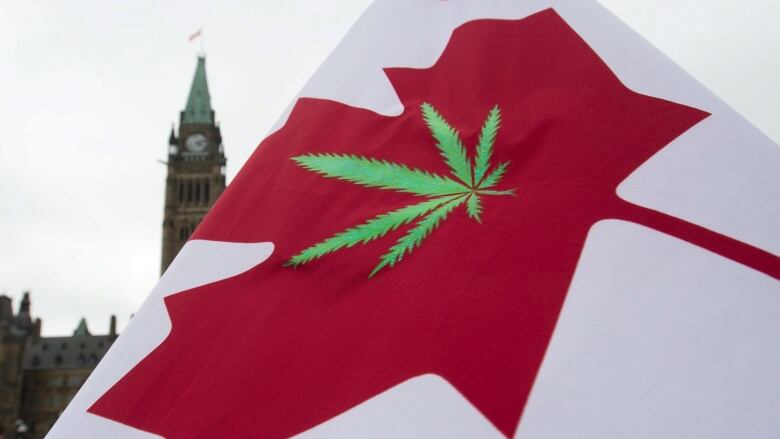Forbidden Entry
"We definitely are not going to miss out on the opportunity."
"All of the Americans are going to be welcome. Getting back, though, is going to be an issue."
Jon Liedtke, co-owner, Higher Limits Cannabis Lounge, Windsor
"Crossing the border with marijuana is prohibited and could potentially result in seizure, fines, and apprehension."
"CBP is always concerned about criminal activity at our U.S. Borders. CBP officers are the nation's first line of defence, including prevention of illegal importation of narcotics, including marijuana."
"U.S. federal law prohibits the importation of marijuana and CBP officers will continue to enforce that law."
U.S. Customs and Border Protection
"We didn't answer at first [question put to Canadian group at the Washington border by a CBP officer whether they had ever used drugs], we were so taken aback. I mean, really, it's none of their business."
"I mean who hasn't had a puff of a joint? The whole thing is just simply ridiculous."
Jessica Goldstein, British Columbian
 |
| Cars from Canada line up to cross into the U.S. in Blaine, Wash. (Elaine Thompson/AP Photo) |
In the United States, 31 states of the union of that grand Republic allow medical marijuana, reflecting a state-by-state regulatory control. In nine of the U.S. states marijuana, by state law, is legal for recreational purposes. This contravenes U.S. federal law which classifies cannabis as a Schedule 1 prohibition which places it on a par with a powerful drug like heroin. While residents of the states where marijuana use is legal both recreationally and for medical purposes are able to indulge in their state of residence, to do so elsewhere represents a federally criminal act.
And it is American federal law that is paramount at the border between Canada and the United States. Since Canada is set to legalize recreational marijuana in mid-October, this will represent yet another little irritant between the two neighbours. Wicked Canadians will be persona non grata in the United States, as B.C. resident Jessica Goldstein discovered when she finally admitted to a questioning border agent that she had indeed in the past smoked marijuana and was thenceforth banned for life from entering the U.S. which she had often before visited for concerts, visiting friends, shopping.
In point of fact, had she outright refused to answer the question and remained silent that would have been taken as an admission of guilt, and the same result would have been incurred. If she had confided in the agent that she had used marijuana once, fifteen years ago, didn't care for it and would never smoke it again, that statement would have been viewed as absolutely incriminating with a like final result. Had she encountered a more easy-going agent he might have shrugged it off. That wasn't her luck this time.
She will never again in her lifetime, unless a massive change in U.S. law takes place, be able to enjoy using her family's vacation cabin in Washington State. Her friends who had been with her when the interrogation took place at the border decided to respond in the negative; no, they had never, nor would they ever, use marijuana. Welcome to the United States of America!
| Terry Johnson Jr. manages a pot shop in Calais, Maine, and thinks people crossing the border may have to educate themselves about laws governing weed. (Matthew Bingley/CBC) |
Mind, recreational marijuana has been legal in the state of Washington for the past four years. But when these Canadians attempted to casually cross the border as they were wont to do, they weren't merely crossing from British Columbia into Washington State; they were crossing from Canada into the United States; fine distinction, that. Nor is the situation any more relaxed for Americans returning from a visit to Canada. They too must cross that marijuana militarized zone, a 9,000-kilometre contiguous border.
American citizens wanting to cross the border to re-enter their country with the cannabis prize they bought legally in Canada, meaning to take it to their home state where it is legal, risk being arrested at the border for possession or for smuggling drugs. Stiff fines or years in jail present as quite the deterrence. All the more so now that Attorney General Jeff Sessions has indicated quite clearly that marijuana enforcement by the federal government will continue apace.
From West to East on the continental divide, Windsor is bracing for an inrush of young Americans to augment the 19-to-21-year-olds who flock over on weekends to enjoy Ontario's alcohol drinking age, lower by two years than Michigan's. Windsor is awaiting an influx of all ages looking for the freedom to smoke legal marijuana; legal for medical purposes in Michigan, but soon legal in Ontario for recreation and fun-times.
 |
| Cannabis will be legal in Canada as of Oct. 17, but business executives in the cannabis industry say they are facing troubles at the U.S. border. (Adrian Wyld/Canadian Press) |
Labels: Canada/US Relations, Legalization, Marijuana, Political Realities
0 Comments:
Post a Comment
<< Home